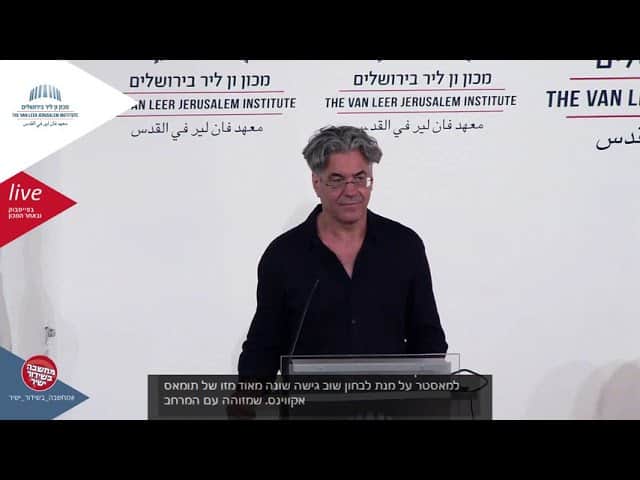For Outstanding Research in Christian Thought and Its Multicultural Connections
29.08.21
Greetings, Prof. Shai Lavi, director, The Van Leer Jerusalem Institute
Words in Memory of Father Prof. Marcel-Jacques Dubois and about the Prize that Commemorates His Work, Prof. Yossi Schwartz, chair of the prize committee
Presentation of the Prizewinners and Awarding of the Prize, Prof. Avital Wohlman, representative of the Dubois Fund
Presentation of the Prize-winning Studies by the Winners
When Pain Becomes Love, Dr. Ronny Naor, Tel Aviv University
The Secret of Benayahu ben Yehoyada: A Reading of the Kabbalistic Sermons in Light of Christian Commentary on the Hebrew Bible, Dr. Yonatan Ben-Harosh, The Hebrew University of Jerusalem and Harvard University
When Pain Becomes Love | Dr. Ronny Naor
How does pain become love? How did pain that medieval Christian ascetics in Central Europe inflicted upon themselves express love of a deity? The answer lies in the change that pain creates in the epistemic boundaries of the self as a conscious object, a change that makes possible a deviation or release, albeit brief and partial, from these boundaries. Without this change, it would not be possible to express love of the deity, who is not an object. At this point we may link the existential state of the self when it is in pain with the existential state of the self in the Christian context: The imitation of the deity is expressed in the experience of imitatio Christi, with its physical and visual representations of the God become flesh in the body of his son Christos, but also in the experience of being a non-object, like the deity, who is not an object—the object of the love of the self.
A Reading of the Kabbalistic Sermons in Light of Christian Commentary on the Hebrew Bible | Dr. Yonatan Ben-Harosh
Many Kabbalistic sermons in the Zohar (and in the Kabbalistic circles in Castile) at the end of the thirteenth century and the beginning of the fourteenth, contain a veiled response to Christian commentary on the Hebrew Bible. This lecture will focus on the sermons about the secret of Benayahu ben Yehoyada, one of King David’s brave warriors and King Solomon’s captain of the guard, and especially on his feats of courage described in 2 Samuel 33:30–31 (and also in 1 Chronicles 11:31–33). The focus of the comparison between the sermons of the Kabbalists and the Christian commentators will be the commentaries in the Glossa Ordinairia, a collection of biblical commentaries by the church fathers in Latin, compiled in northern France in the twelfth century. This lecture will expose the approach toward Christianity that arises from the sermons of the Kabbalists, and point to their knotty and complex response to Christian commentary on the character of this great warrior.
Members of the steering committee of the prize (in alphabetical order):
Dr. Ayelet Ibn Ezra, The Hebrew University of Jerusalem; Prof. Pini Ifergan, Bar-Ilan University; Prof. Avital Wohlman, The Hebrew University of Jerusalem; Fr. Etienne Nodet, The French Biblical School of Jerusalem; Dr. Yochi Fischer, The Van Leer Jerusalem Institute; Prof. Yossi Schwartz, Tel Aviv University.

